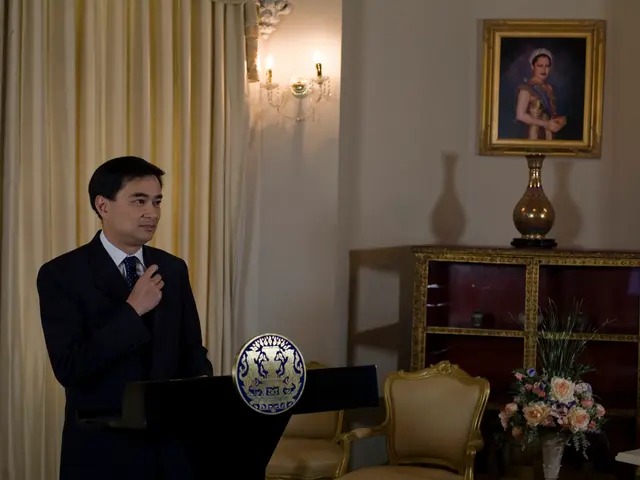Far-reaching reforms advocate called for by Merz
In a lively general debate in Germany's parliament, Chancellor Friedrich Merz outlined his plans for far-reaching economic and social system reforms. Merz emphasised the urgency of these changes, stating that they are necessary to stabilise the social systems and establish a 'new consensus' on what justice means.
Merz criticised the notion of separating internal and foreign policy, asserting that it is outdated. He warned of the potential consequences of a peace dictated by Russia in Ukraine, stating that it would encourage Russian President Vladimir Putin to look for his next target. Merz also emphasised that Putin sabotages, spies, murders, and tries to sow uncertainty.
The coalition's economic policy reforms include the reduction of bureaucracy, modernisation of the state, and maintaining a reasonable tax framework with private investment encouragement. Key measures are the implementation of reforms before the summer break, the establishment of a Digital Ministry to support modernisation, and advancing a new consensus on fairness in taxation, including wealth tax reform.
Merz also focused on reforming social systems, such as tightening rules on citizen's income to incentivise return to work. He asked for the citizens' and the federal government's support in these reforms.
However, not all parliamentary group leaders were in agreement with Merz. Green faction leader Katharina Dröge sharply criticised the black-red economic policy. She accused Merz, in part, of being responsible for an unfavourable trade deal with US President Donald Trump. Dröge also stated that the CDU is clinging to outdated technologies like the internal combustion engine.
The SPD parliamentary group leader, Matthias Miersch, expressed more restraint than Merz about the extent of the reform needs. He called for the wealthy to contribute more in Germany.
The AfD party and parliamentary group leader, Alice Weidel, sharply attacked Merz, accusing him of breaking election promises and 'warmongering' in Ukraine. Weidel renewed AfD demands for further tightening at the borders, on family reunification, a return to nuclear power or cuts in climate protection spending. Weidel also criticised the migration policy of the black-red federal government.
Despite these accusations, Merz did not engage with them during the general debate.
In conclusion, Merz has prepared the people of Germany for far-reaching reforms. The decisions he is referring to concern fundamentals about how Germany lives, works, does business, and whether its values will continue to endure. The outcomes of these reforms will have significant implications for the future of Germany.
Read also:
- United States tariffs pose a threat to India, necessitating the recruitment of adept negotiators or strategists, similar to those who had influenced Trump's decisions.
- Weekly happenings in the German Federal Parliament (Bundestag)
- Southwest region's most popular posts, accompanied by an inquiry:
- Discussion between Putin and Trump in Alaska could potentially overshadow Ukraine's concerns








